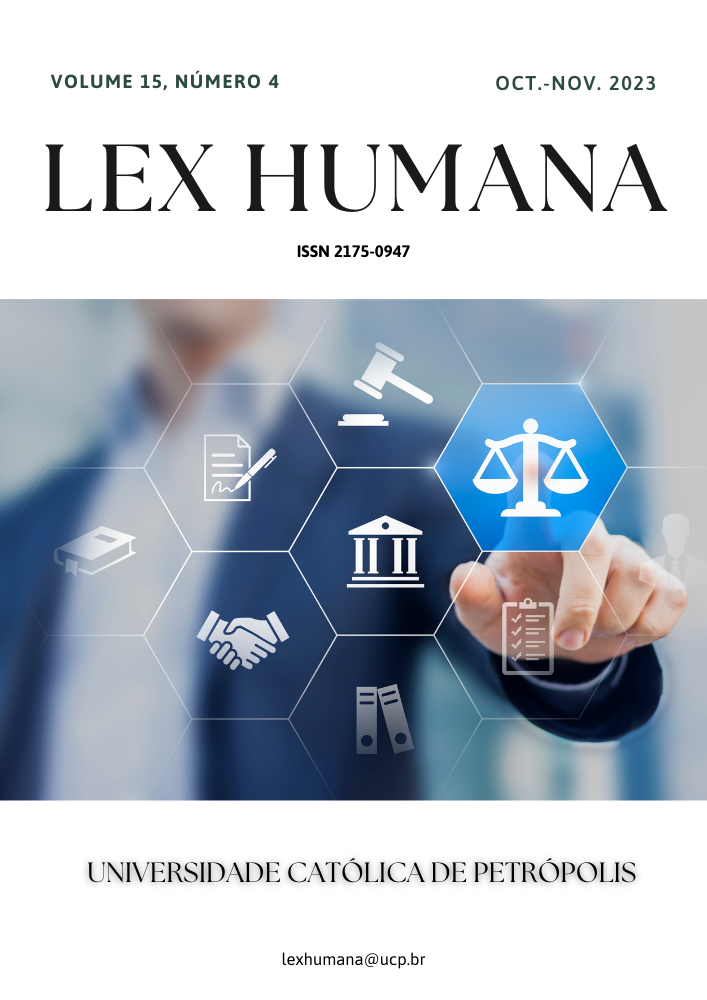Abstract
The Public Administration is constantly changing in order to provide the best response to the interests of citizens. Along with this phenomenon, there are several theories that seek to extract the best from the Public Administration. The new public management theory is one of them, and it appears here with the purpose of being better studied and understood in what concerns the role of leadership. With this article we will be able to better understand the role that a leader has in coordinating the Public Administration, something that sometimes escapes the lens of the readers. In theoretical terms it will be relevant to understand the relationship between leadership and the new public management phenomenon, something little studied. To achieve this objective a literature review was carried out in order to reach the intended results. In conclusion, it is understood that the increasing complexity of the problems that arise in the public sector are placing on the leader challenges and pressures never before seen.
References
Adair, J. (2003). Effective strategic leadership. Pan Books.
Araújo, J. (2004). A Reforma da Gestão Pública: do mito à realidade. Artigo apresentado na Conferência: A Reforma da Administração Pública – apostas e casos de sucesso: 31.
Behn, R. (1998). Wilson Social Sciences Abstracts. Public Administration Review, 58(3), 209.
Behn, R. 2003. One Approach to Performance Leadership: Eleven “Better Practices” That Can Help “Ratchet Up” Performance. A Paper Prepared for The Seventh National Public Management Research Conference The Georgetown Public Policy Institute. Washington, D.C.: Georgetown University.
Boyett, J. (1999). O Guia dos Gurus: os melhores conceitos e práticas de negócios. Editora Campus.
Capricho, L.; & Lopes, L. (2007). Gestão da Qualidade. Editora RH.
Collins, J.; & Porras, J. (1997). Empresas de Sucesso. Edição Livros do Brasil.
Correia, P., Mendes, I., & Bilhim, J. (2019). As redes de colaboração como fator inovador na implementação de políticas públicas. um enquadramento teórico com base na nova governação pública. Lex Humana, 11(2), 143-162.
Correia, P., Mendes, I., Dias, I., & Pereira, S. (2020). A evolução do conceito de serviço público no contexto das mudanças de estado e concessões político-administrativas: uma visão aglutinadora. Revista da FAE, 23(1), 45-64.
Davitkovski, B., Pavlovska-Daneva, A., Shumanovska-Spasovska, I., & Davitkovska, E. (2018). Independent bodies as a model of organization of the public administration. Juridical Tribune/Tribuna Juridica, 8(2), 453-476.
Deming, W. (2000). The new Economics – for industry, government, education. The MIT Press.
Duluc, A. (2001). Liderança e Confiança: desenvolver o capital humano para organizações competitivas. Instituto Piaget.
Fonseca, F.; & Carapeto, C. (2005). Administração Pública – Modernização, Qualidade e Inovação. Edições Sílabo.
Greve, C.; & Jespersen, K. (1999). New Public Managemente and its Critics. Alternative Roads to FlexibleService Delivery to Citizens? (pp.143-156). In Citizens and The New Governance, IOS Press.
Hood, C. (1991). A Public Management for All Seasons?. Public Administration, 69(1), 3- 19.
Hooijberg, R. (2001). The impact of organizational characteristics on leadership effectiveness models. Administration & Society: Sage Publications, 33(4), 403-431.
Kotter, J. (1997). Liderando Mudança. Editora Campus.
Lane, J. (2005). Public Administration and Public Management – the principal agent perspective. Routledge.
Liegl, B. (1999). The Fallacies of New Pubic Management – Can They Still Be Prevented in the Austrian Context? (pp.175-186). In Case Studies in Public Services Management. IOS Press.
Lopes, A. & Felício, M. (2005). Competências de gestão em globalização – estudo de caso de uma empresa em processo de internacionalização. Revista Portuguesa e Brasileira de Gestão. 4(1).
Lopes, A. & Honório, P. (2004). Liderar para evitar o declínio das organizações. Um contributo para a gestão, assente no modelo de P. Pitcher. Em torno da psicologia. Livros Horizonte.
Maia, T. & Correia, P. (2022). Desafios da Implementação da Nova Gestão Pública. Lex Humana, 14(2), 121-138.
Organization for Economic Co-operation and Development – OCDE. (2001). Lier Leadership et performances dans les organisations publiques [on line]. Paris: Disponível em: .
Pereira, S., Correia, P., & Lunardi, F. (2022). Desafios na Implementação da Nova Gestão Pública na Judicatura Portuguesa: O Juiz Tradicional Versus o Juiz Gestor. Humanidades & Inovação, 9(19), 125-134.
Pereira, S., & Correia, P. (2020). Movimentos Pós-Nova Gestão Pública: O novo Serviço Público. Lex Humana, 12(1), 69-85.
Resende, S., Correia, P. & Lunardi, F. (2022). A Modernização da Administração pela Lente do Google Scholar. European Journal of Applied Business Management, 8(4), 126-140.
Rocha, O. (2000). Organização e Gestão dos Tribunais. [Comunicação de Conferência]. Conferência do Centro de Estudos Judiciários, Lisboa.
Rocha, O. (2010). Gestão de Recursos Humanos na Administração Pública. Escolar Editora.
Rosell, S. (2000). Un nouvel encadrement pour le leadership et a gouvernance à l’ère de l’information.
Şaramet, O. (2018). Separation and balance of power and discretionary power in public administration. Tribuna Juridică, 8(16), 437-452.
Senge, P.; Roberts, C.; Ross, R.; Roth, G. & Smith, B. (2000). A dança das Mudanças. Editora Campos.
Teixeira, S. (1998). Gestão das Organizações. MacGraw-Hill.
Terry, L. (1995). Leadership o public bureaucracies: the administrator as conservator. Sharpe.

This work is licensed under a Creative Commons Attribution-NonCommercial-NoDerivatives 4.0 International License.
Copyright (c) 2023 Lex Humana (ISSN 2175-0947)

